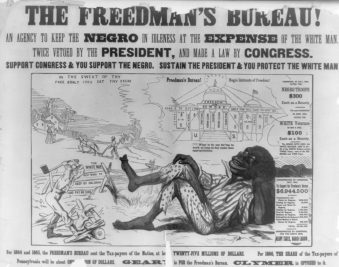 Implicit bias came up as a topic in the recent presidential debate. Hillary Clinton spoke to the presence of this implicit bias and how it might impact societal norms and behaviors, specifically manifesting is disenfranchisement for the non-white citizenry. Many people want to reject this claim of bias out of hand, probably because it is uncomfortable to deal with. Instead of bias many will point to numbers that support that certain groups are more highly associated with poverty and crime, and violence against members of minority groups more often arises from within that minority groups communities. We can look at data in a number of ways and come up with different overarching conclusions, but a conclusion that presumes a race or ethnicity is inherently worse is inherently biased, and runs contradictory to facts. To presume that more black people are in poverty because they are lazy or that more black people are in jail because they are inherently more likely to engage in criminal activity ignores data regarding disparities in social equity and in policing, as well as data on cross-demographic behavioral norms. It is a reflection of the systemic bias alluded to rather than a refutation.
Implicit bias came up as a topic in the recent presidential debate. Hillary Clinton spoke to the presence of this implicit bias and how it might impact societal norms and behaviors, specifically manifesting is disenfranchisement for the non-white citizenry. Many people want to reject this claim of bias out of hand, probably because it is uncomfortable to deal with. Instead of bias many will point to numbers that support that certain groups are more highly associated with poverty and crime, and violence against members of minority groups more often arises from within that minority groups communities. We can look at data in a number of ways and come up with different overarching conclusions, but a conclusion that presumes a race or ethnicity is inherently worse is inherently biased, and runs contradictory to facts. To presume that more black people are in poverty because they are lazy or that more black people are in jail because they are inherently more likely to engage in criminal activity ignores data regarding disparities in social equity and in policing, as well as data on cross-demographic behavioral norms. It is a reflection of the systemic bias alluded to rather than a refutation.
Harvard has a web-based test one can take to determine their own level of implicit bias, on a number of different topics. I will confess to having taken this test and being very upset by the results. While the test site cautions against using the mechanism for reasons beyond education, it is hard not to take it personally when the result indicates that you have a significant bias when you were convinced you did not. As an educational tool, the tests can help us understand the nature of implicit bias, which is the key to mitigation. One cannot negate a bias that one is not aware of. Interestingly, this pervasive bias can even impact individual groups to have biased views of their own group. Keep in mind that 150 years ago this country still allowed ownership of black people, and just 50 years ago black people still weren’t allowed to eat, drink, ride, or live with white people, among other inequities. Why does it seem so farfetched that implicit bias would remain when there are people still alive who lived through the civil rights movement, and many that grew up immediately after?
We have to collectively be willing to acknowledge the bias that obviously exists in this country in order to successfully move away from it. We still have indications that something as simple as a name leads to stereotyping, which can impact access to jobs and credit. And a poor credit score, which disproportionately impact minorities, can be its own impediment to work despite the lack of correlation between job performance and credit. Police tend to target economically depressed areas, and are far more likely to arrest and jail non-whites as a proportion of the populace. Police are also more likely to use lethal force on blacks as a percentage of the populace. This plausibly stems from this pervasive implicit societal bias, where all of us – even individual minority in-groups – are more likely to view minority groups as either inferior, more dangerous, or otherwise less desirable groups with which to identify.
Do we, as a nation, have the mental fortitude to properly scrutinize this issue and develop ways to mitigate it? We have made enormous strides over time, and we continue to move toward better equity and equality within our society. We can continue to improve, and make this a better place for everyone, but it requires that we honestly address issues such as this. We will not make the necessary improvements by looking backward, or by pretending the problem does not exist. So what will we do next? What will you do?
2 thoughts on “Implicit Bias”
Comments are closed.